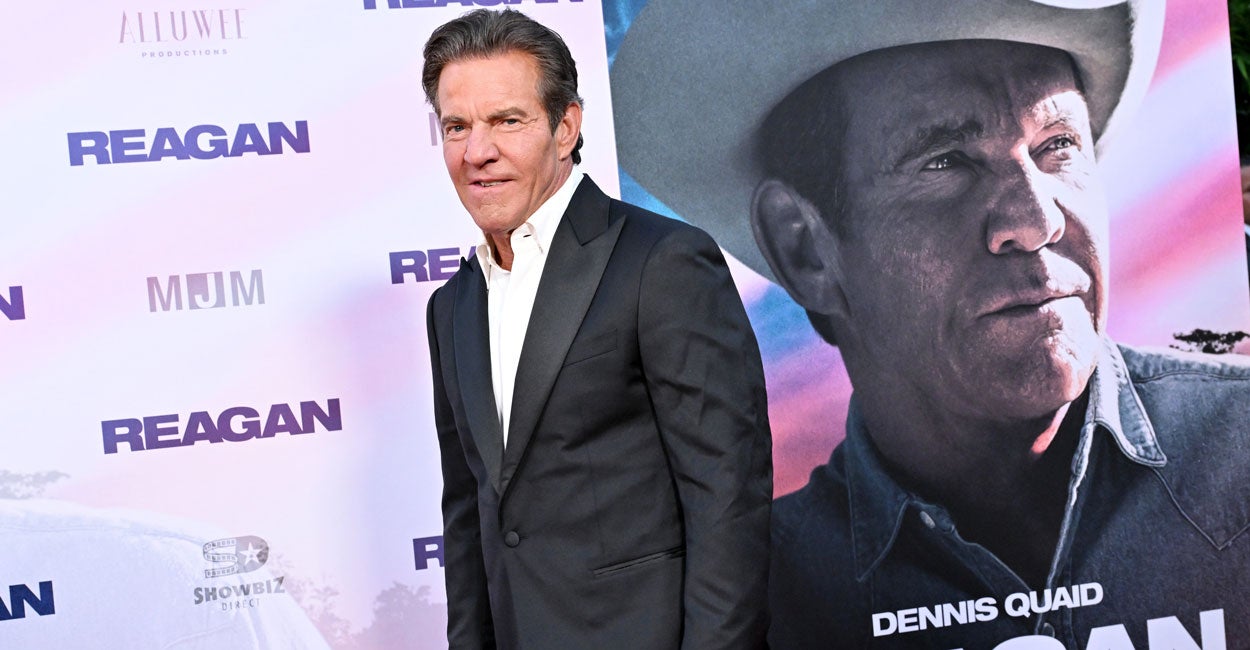


“Movies aren’t made, they are forced into existence,” said legendary producer Laura Ziskin. Mark Joseph’s 19-year journey to bring “Reagan” to the screen proves that point. The film finally debuted last year, defying expectations with a 98% audience approval rating on Rotten Tomatoes and $30.1 million at the box office, reaching No. 1 both at the box office and later on the DVD charts.
Joseph recounts this journey in “Making Reagan,” a behind-the-scenes chronicle of immense value to filmmakers and artists. More than a companion to the movie, the book explores the struggle to create art with lasting significance. Joseph writes from a perspective often ignored in modern storytelling: faith—not in a simplistic “faith-based” sense but as the invisible force shaping people and events.
In many ways, Ronald Reagan was an obvious biopic subject. Alongside Pope John Paul II, he helped bring down the Soviet Union. Yet in 2005, when Joseph began, no major film on Reagan existed. Hollywood’s leftward tilt and the cultural incompetence of the right shared the blame.
The deeper obstacle was Reagan himself. His official biographer, Edmund Morris, called him “inscrutable.” Reagan’s loyalty to advisers like Edwin Meese and his friendship with House Speaker Tip O’Neill were well-known, but his core motivations often escaped even those closest to him. Critics dismissed him as a cheerful B-movie actor spouting conservative clichés. That view began to shift with the release of his personal letters, revealing a man of intellect and conviction shaped by faith.
To Joseph, Reagan’s mystery merged with the mystery of providence—the “Unseen Hand” in history. Joseph’s interest in Reagan began as a boy, inexplicably hanging a Reagan poster in his room. Years later, a vacation detour through Dixon, Illinois—Reagan’s hometown—led him to visit Reagan’s boyhood home, church, and the river where the teenage Reagan worked as a lifeguard.
Joseph’s curiosity became a calling when he read “The Crusader: Ronald Reagan and the Fall of Communism” by Paul Kengor. Kengor’s book spotlighted Reagan’s formative years, especially the influence of his mother, Nelle. Her faith and her constant reminder, “Remember whose you are and whom you serve,” became Reagan’s moral compass.
At age 11, he read “That Printer of Udell’s,” a Horatio Alger-style novel about an alcoholic’s son who finds faith and rises in public service. Reagan was baptized shortly after and treated the book as a life model. Kengor even found the sermons Reagan heard growing up, which warned against communism—foreshadowing the convictions of his presidency.
This moral clarity defined Reagan’s public life. As president of the Screen Actors Guild, he resisted a communist push in Hollywood. As president of the United States, he called the Soviet Union an “evil empire” and stood at the Brandenburg Gate to say, “Mr. Gorbachev, tear down this wall!”
Inspired, Joseph acquired the film rights and announced “Reagan: The Movie” in The Hollywood Reporter in 2006.
The story went viral—but the hard work was just beginning. For 15 years, Joseph endured false starts, rewrites, and betrayals. At one point, Nicolas Cage agreed to play Reagan after meeting Joseph, but later backed out.
Funding was just as difficult. Joseph turned down financiers who demanded creative control, fearing Hollywood would compromise Reagan’s story. He recounts encounters with grifters—from a woman pretending to be a billionaire’s daughter to a Monaco model blaming missing funds on banking errors. Still, he pressed on, believing in the film’s purpose.
In 2020, Joseph made a leap of faith. With partial funding, he packed his family—including his 92-year-old mother—into an RV and headed to Guthrie, Oklahoma, where a neo-Renaissance Masonic temple became the main set. Amid COVID-19 disruptions, production began.
Joseph’s appreciation for his collaborators shines throughout “Making Reagan.” Justin Chatwin, portraying Reagan’s alcoholic father, drew from personal experience, darkening the character’s depiction. Dan Lauria, as O’Neill, added subtle Catholic symbolism with a rosary in a hospital scene. Jon Voight brought depth as a cold KGB agent, drawing on memories of Soviet Russia, where the apparatchiks he met all had dead eyes. Penelope Ann Miller portrayed Nancy Reagan with nuance—capturing her fierce protection of Reagan and her ability to rebuild him during low points.
Joseph’s partnership with Dennis Quaid, who played Reagan, was central. Together, they refined the Brandenburg Gate speech—the film’s emotional peak. Quaid noticed Reagan’s line about sunlight reflecting off a cross on an East German tower. “The wall cannot withstand faith. It cannot withstand truth. The wall cannot withstand freedom,” Reagan declared. Juxtaposed with his young speechwriters watching on TV and leaping into the air cheering, the moment lands as the film’s emotional high point.
Joseph is honest about the toll of the 19-year effort. He recalls pacing Guthrie’s streets, trying to manage anxiety. Yet he also writes with gratitude—for the friendships, the creative collaboration, and the chance to bring Reagan’s story to life. He ends with awe at the providence behind the project and frustration at the cultural apathy that delayed it.
If we are ever to rebuild a healthy culture, it cannot take 19 years to make a movie about Ronald Reagan. Conservatives’ unwillingness to support the arts is not caution but cowardice. Without investment in culture, their ideals may vanish. Yet Joseph’s “Reagan,” born of faith and perseverance, offers hope—and a model for artists unafraid to follow the Unseen Hand.
We publish a variety of perspectives. Nothing written here is to be construed as representing the views of The Daily Signal.
